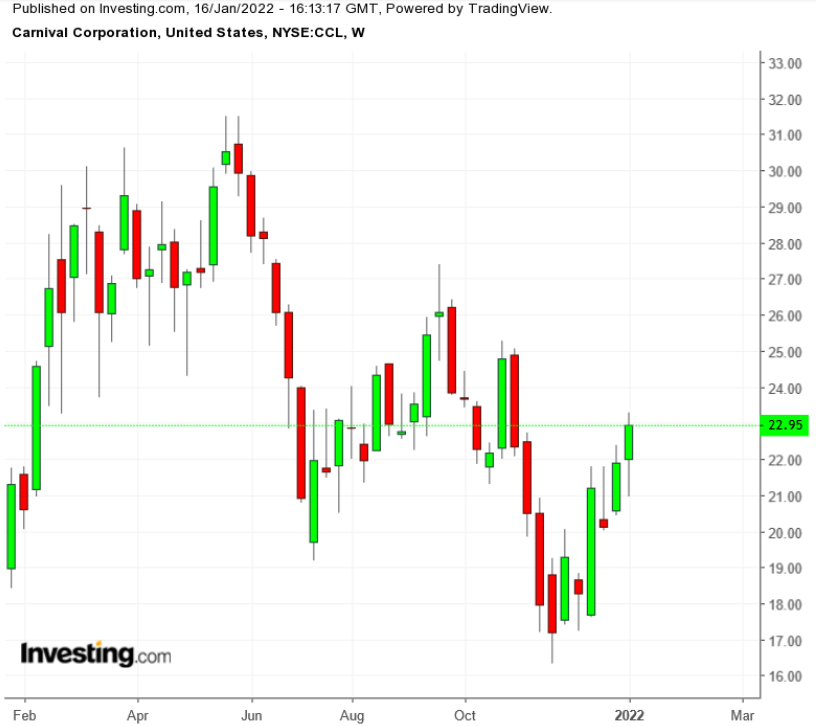Rockwell Automation shares rise 5% as fourth quarter earnings beat expectations
Active investing has become a dirty word over the past ten years.
Study after study shows that actively managed funds have consistently underperformed their benchmarks, especially when it comes to stocks.
2021 was no different. 90% of actively managed equity funds benchmarked to the S&P 500 underperformed the index. This is why the migration of money out of actively managed funds into passive vehicles like ETFs is showing no signs of slowdown.
If it has become impossible to beat the market, why should you bother listening to me, or any so-called professional pundits for that matter, about how to how to invest your money?
A good question.
Maybe because, when it comes to the markets, I have been right more often than I've been wrong.
You can google the big calls I have made in my 20-year career on Wall Street, but if I were you, I wouldn't waste my time on that. A strategist is only as good as his calls today. Past returns are not a guarantee of future results. In the market, every day is a new day.
More important should be how good my calls have been recently.
Four months ago, I started writing for this site plus I concurrently post my calls on my personal site.
On Oct. 21, I recommended buying Pfizer (NYSE:PFE).
On Nov. 12, I recommended buying the iPath® Series B S&P 500® VIX Short-Term Futures™ ETN (NYSE:VXX) and shorting the iShares TIPS Bond ETF (NYSE:TIP) and also predicted that financials would outperform tech.
On Dec. 10, I recommended buying Exxon Mobil (NYSE:XOM).
You can easily check that these trades did well, and in some cases, very well. Plus, from my perspective, perhaps more importantly, they did well for the reasons I thought they would.
Macro Themes, Solid Fundamentals, Straightforward Business Models
So what's my edge, you may ask?
This bring us back to the question of why alpha is disappearing from active investing, especially in equities.
In my view, it's a skills mismatch. While most professional equity fund managers focus their efforts on analyzing the individual companies in their investment universe, the performance of the share price of these companies is increasingly driven by macro considerations that have little to do with what these companies are doing on their own.
My edge is that I am a macro economist-strategist. My focus is on predicting the macro themes that drive markets. In case you are wondering, because I don’t look at companies too closely, I tend to choose only stocks of companies with solid fundamentals and easy-to-
Now that you know a little more about my process, let’s talk about my favorite investment at the moment, Carnival Corporation (NYSE:CCL), the global cruise line operator.

I started recommending buying this stock two weeks ago. The stock has already gone up 13% since then. It closed on Friday at $22.95 but I feel that there is plenty of upside left in this trade. I think it's heading to $30 a share, which would represent a 30% return from here.
My bullish view on CCL stems from the fact that since the early days of Omicron I have viewed the new variant as potentially the light at the end of the tunnel for the pandemic. Because this strain of COVID combines being highly contagious with generally being mild, I thought the new variant may allow the world to reach herd immunity more quickly and more safely.
Indeed, the arrival of Omicron on the scene was the reason why I soon closed all my PFE positions as it might even reduce the need for boosters.
With experts predicting that Omicron could peak at the end of this month, the market is coming around to my view. This means more people are looking to put money into companies that would benefit from re-opening. This is why CCL is going up.
In my view, CCL stands out, compared to other re-opening trades:
1. Compared to the hotel industry, cruise lines seem cheap. Even with its recent rally, CCL is still trading at just 50% of its pre-COVID level.
2. CCL’s debt has gone up but given recent refinancing, it has reduced its future annual interest expense by more than $250mln a year.
3. Cruise lines are sensitive to fuel price increases but less so than airlines, another popular re-opening trade.
4. With Americans being the majority of global cruise passengers, CCL is well positioned to benefit from a post-COVID splash by Americans who have saved the equivalent of a year’s income during the pandemic.
Before COVID came along, the cruise industry was thriving due to the aging population worldwide and from the fact that air travel has become unnecessarily stressful. Recent surveys suggest that younger people who have never been on a cruise are open to trying one.
In that respect, CCL is not just a normalization trade but one with a positive long-term story. The market Iikes a good story and I suspect few industries will have as good a story as the cruise industry in 2022.
The risks to the trade? Three come to mind: new variants of COVID that are less mild than Omicron; an unexpected slowdown of the US economy that reduces discretionary
That's also the reason why I remain long XOM.
